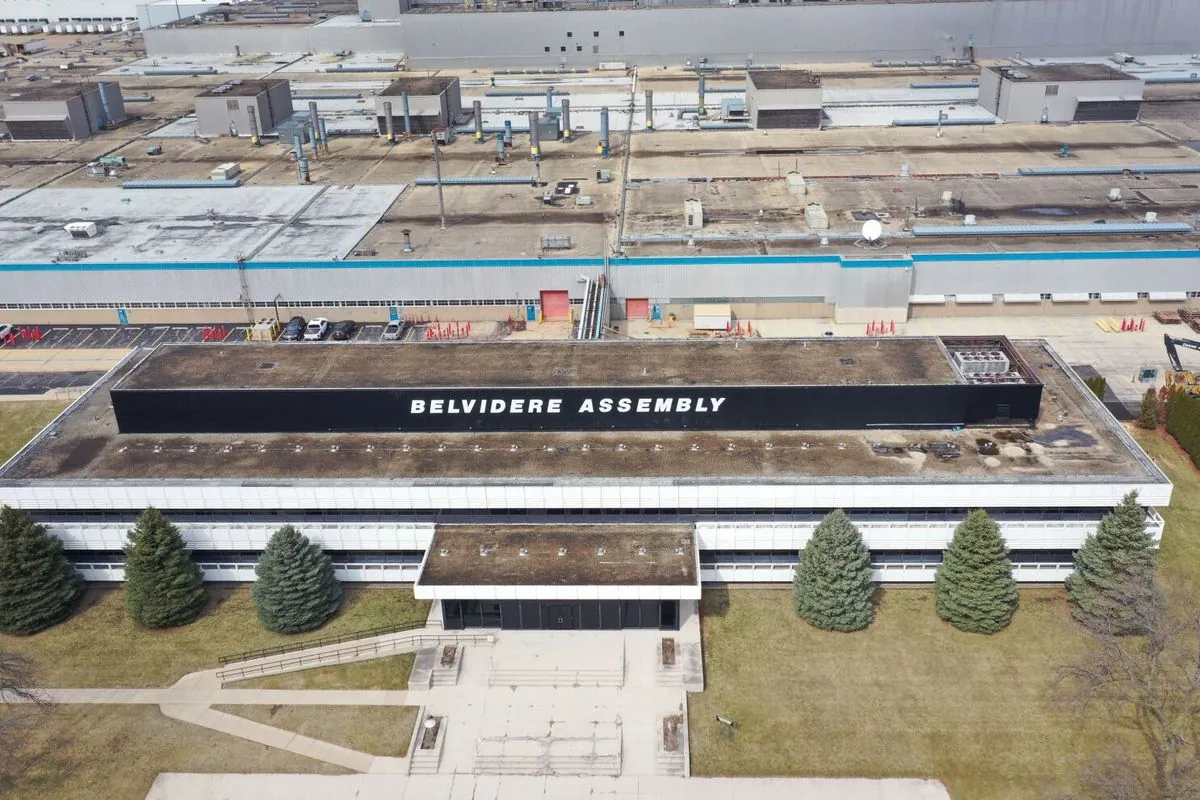UAW Accuses Stellantis of Contract Violations, Files Labor Charges
The United Auto Workers union has filed federal labor charges against Stellantis, alleging contract violations regarding factory commitments and potential production relocation. Stellantis denies wrongdoing, citing market conditions.

The United Auto Workers (UAW) union has escalated its dispute with Stellantis, filing federal labor charges and accusing the automaker of breaching contractual obligations. This development comes nearly a year after the resolution of a significant strike that reshaped the automotive industry landscape.
The UAW has lodged complaints with the National Labor Relations Board (NLRB), alleging that Stellantis is unlawfully withholding information about plans for its Belvidere, Illinois facility. The union claims the company is not honoring commitments to reopen the assembly plant, construct a parts distribution center, and establish an electric vehicle battery plant in the area.

Additionally, several UAW local unions have filed grievances, asserting that Stellantis intends to relocate production of the Dodge Durango SUV from its current Detroit location to a facility outside the United States. These commitments were reportedly part of the contract negotiated in the fall of 2023, following a six-week strike.
Shawn Fain, the UAW President, emphasized the union's right to strike over contractual commitments to maintain vehicle production within the US. He stated, "We intend to enforce our contract and to make Stellantis keep the promise."
In response, Stellantis has denied any contract violations, explaining that like all automakers, it must manage the introduction of new vehicles to remain competitive. The company stated it would communicate its plans to the UAW "at the appropriate time."
The dispute highlights the ongoing challenges in the automotive industry, which has been undergoing significant transformations. The industry, accounting for about 3% of US GDP and employing approximately 4% of the workforce, faces pressures from the transition to electric vehicles and global competition.
Union members express concern that if Stellantis reneges on its commitment to restart the Belvidere factory, it may not fulfill other promises made in the contract, which extends until April 2028. There are particular worries about the potential relocation of production to lower-cost facilities in Mexico, which has emerged as a major automotive manufacturing hub in recent years.
Stellantis has maintained its intention to reopen Belvidere and proceed with the battery plant and parts warehouse projects but cites unfavorable market conditions as a reason for potential delays. The company has not provided specific dates for these developments. The stakes are high, with over 2,700 jobs hanging in the balance.
The contract, signed in 2023, outlined Stellantis' commitment to invest $18.9 billion in US operations by April 2028. This included plans to reopen Belvidere Assembly in 2027 for the production of up to 100,000 electric and gas-powered midsize pickups annually, open a parts hub in 2024, and establish a battery factory in 2028.
As the automotive industry continues to evolve, with electric vehicle sales in the US growing by 65% in 2022 compared to the previous year, these disputes underscore the complex challenges facing both manufacturers and workers in adapting to changing market conditions and technological advancements.
"Now Stellantis wants to go back on the deal. We intend to enforce our contract and to make Stellantis keep the promise."
The outcome of this dispute could have far-reaching implications for the future of automotive manufacturing in the United States and the ongoing transition to electric vehicles.


































